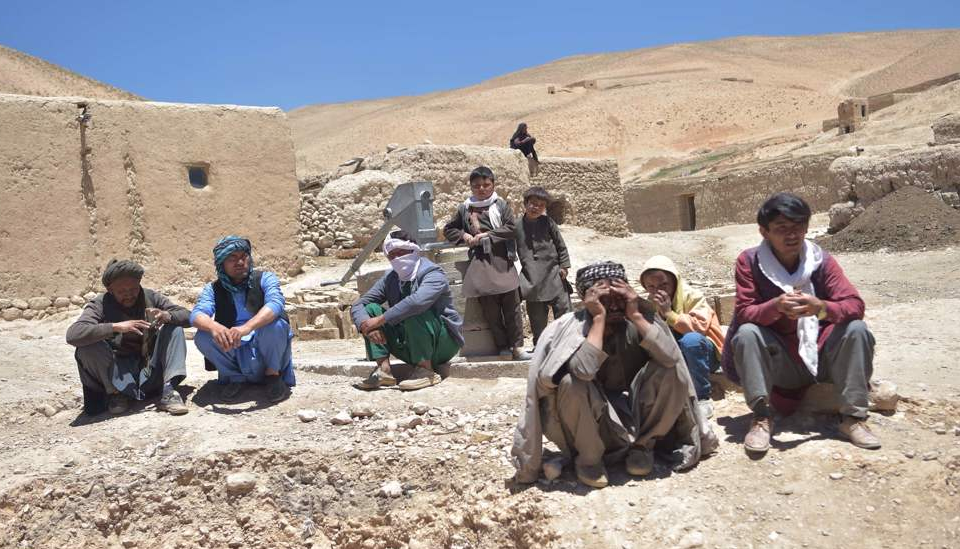
In this picture taken on July 15, 2022, Afghan internally displaced people, who fled to Yakawlang district of Bamyan province due to fighting, gather outdoors in Duzdanchisma village. (Photo by AFP)
Kabul, August 16 (RHC)-- The Red Cross has called on international donors to resume aid flows to Afghanistan as the war-ravaged country is grappling with an “unbearable” humanitarian situation after more than two decades of American occupation.
Robert Mardini, the director-general of the International Committee of the Red Cross (ICRC), made the plea on Monday after donors abruptly halted funding in response to the U.S. withdrawal of troops from Afghanistan and the Taliban’s ascent to power, which left the country struggling with rising poverty, drought and malnutrition.
"Humanitarian organizations alone cannot replace public institutions of a country of 40 million people," Mardini said. "Our key message is really to ask states and development agencies to return to Afghanistan and continue their support for Afghans who are already facing today an unbearable situation."
The ICRC’s chief said the economic situation is so bad in Afghanistan that many urban residents are resorting to selling personal belongings in the street and begging in bread lines in order to survive.
Asked what would happen if donors do not heed the call to resume aid, Mardini said a return to conflict after a period of relative stability since the departure of U.S.-led foreign forces was possible. "This is a recipe for failure; this is a recipe for more tension among communities; and it's also from our experience at ICRC a recipe for more conflict," he said.
The UN says the first step towards remedying food insecurity in Afghanistan is to salvage the Afghan economy from total collapse.
Afghanistan has been in turmoil since the Taliban, who had previously ruled Afghanistan from 1996 to 2001, took power again on August 15, 2021 and subsequently announced the formation of a caretaker government. The group’s resurgence came amid hasty and chaotic departure of American forces from the country.
The United States and its allies then largely suspended their financial assistance to Afghanistan, adding fuel to a refugee crisis that has dramatically affected Afghanistan’s neighbors.
The administration of U.S. President Joe Biden has frozen nearly $9.5 billion in assets belonging to the Afghan central bank since the withdrawal of its occupation forces. The International Monetary Fund (IMF) and the World Bank have also suspended activities in Afghanistan, withholding aid as well as $340 million in new reserves issued by the IMF.

